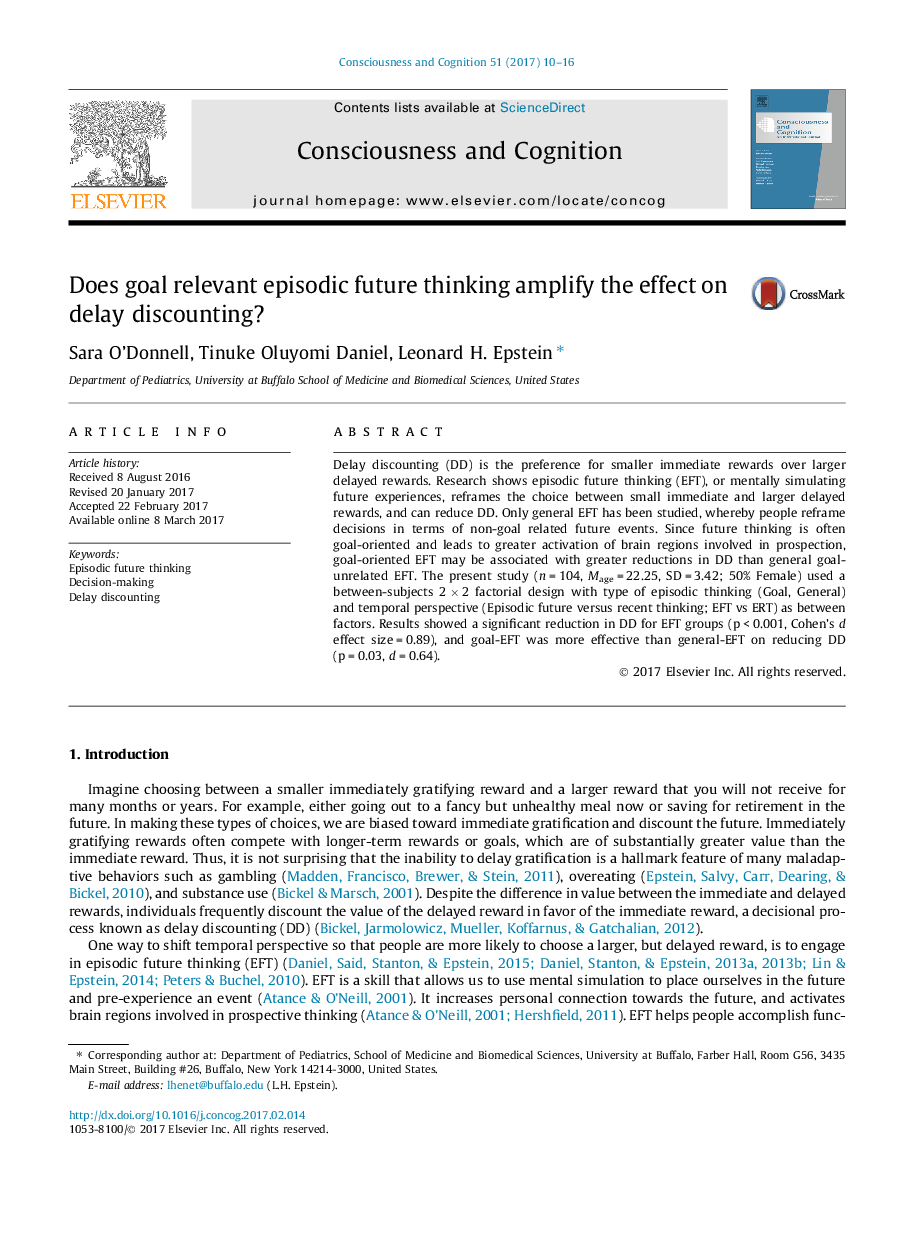| کد مقاله | کد نشریه | سال انتشار | مقاله انگلیسی | نسخه تمام متن |
|---|---|---|---|---|
| 5041833 | 1474160 | 2017 | 7 صفحه PDF | دانلود رایگان |
- Engaging in Episodic Future Thinking (EFT) reduces monetary delay discounting (DD).
- No studies have manipulated the content of EFT to align with the DD task.
- We used a 2Â ÃÂ 2 factorial design to compare financial-oriented EFT and general EFT.
- Two episodic recent thinking groups were used as controls.
- Financial-oriented EFT was more effective than general EFT on reducing monetary DD.
Delay discounting (DD) is the preference for smaller immediate rewards over larger delayed rewards. Research shows episodic future thinking (EFT), or mentally simulating future experiences, reframes the choice between small immediate and larger delayed rewards, and can reduce DD. Only general EFT has been studied, whereby people reframe decisions in terms of non-goal related future events. Since future thinking is often goal-oriented and leads to greater activation of brain regions involved in prospection, goal-oriented EFT may be associated with greater reductions in DD than general goal-unrelated EFT. The present study (n = 104, Mage = 22.25, SD = 3.42; 50% Female) used a between-subjects 2 Ã 2 factorial design with type of episodic thinking (Goal, General) and temporal perspective (Episodic future versus recent thinking; EFT vs ERT) as between factors. Results showed a significant reduction in DD for EFT groups (p < 0.001, Cohen's d effect size = 0.89), and goal-EFT was more effective than general-EFT on reducing DD (p = 0.03, d = 0.64).
Journal: Consciousness and Cognition - Volume 51, May 2017, Pages 10-16
